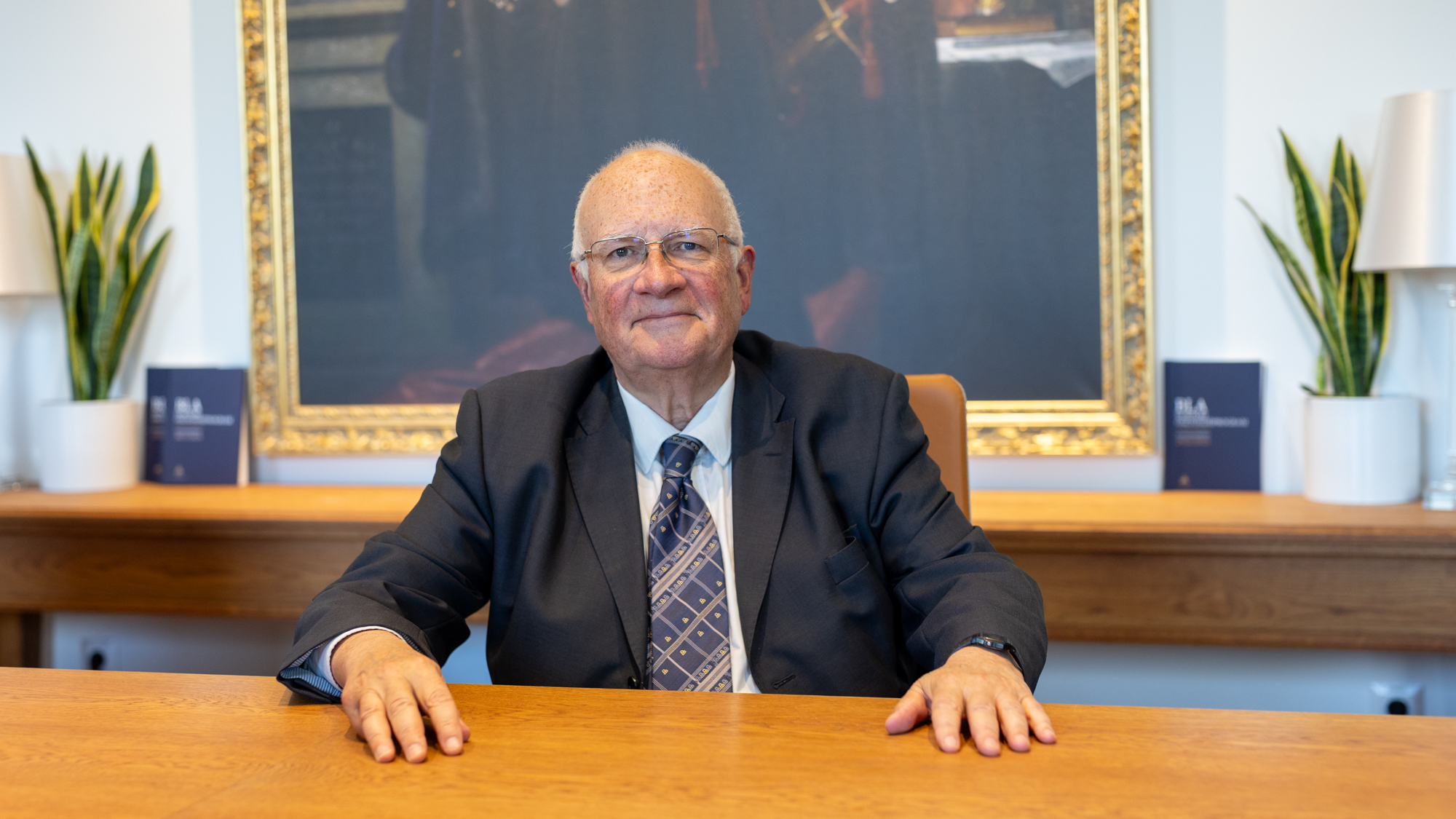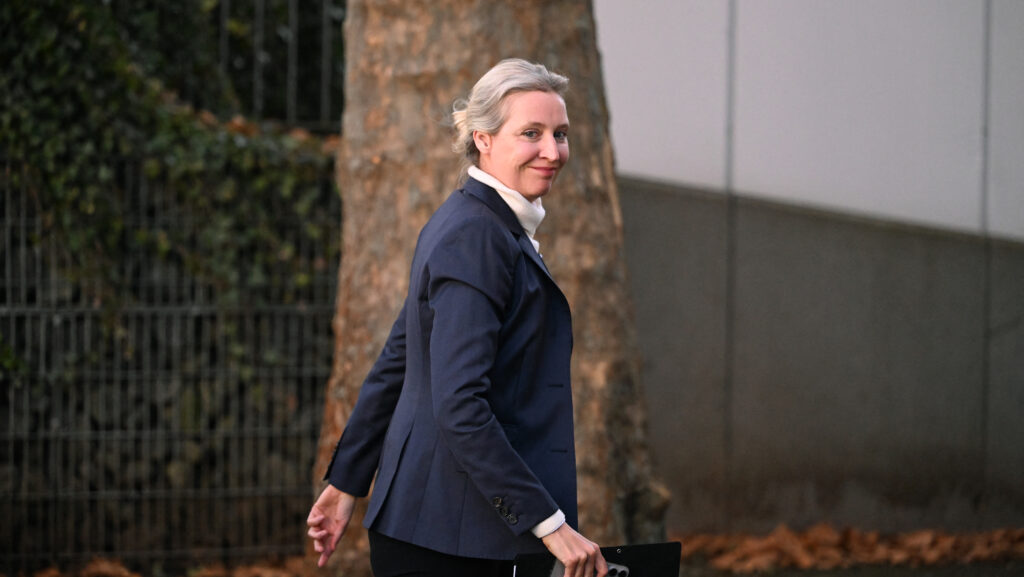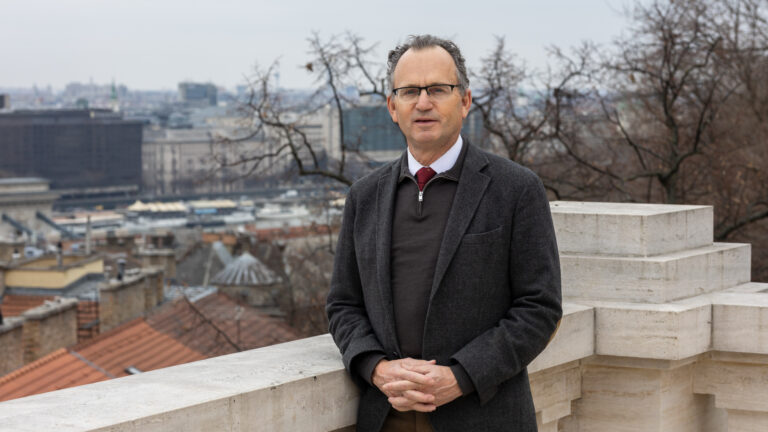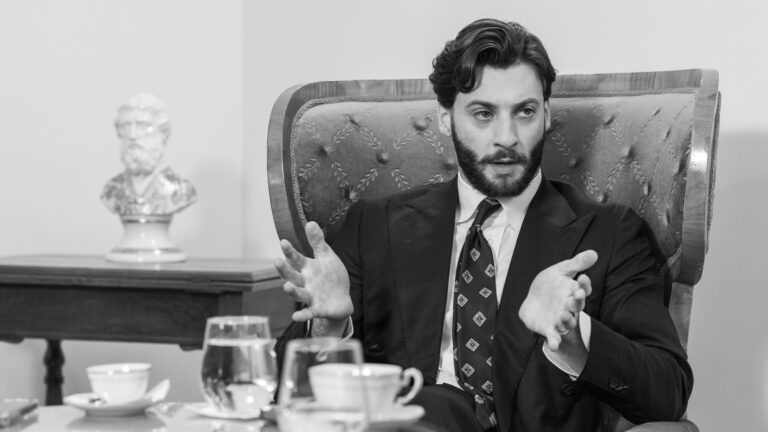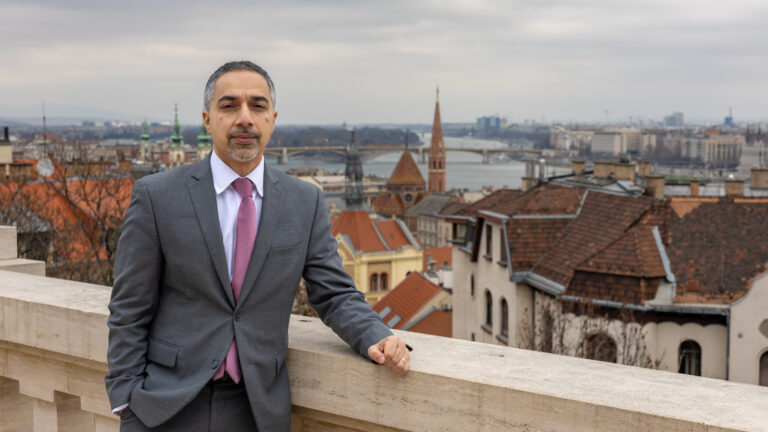Robin Harris is a British historian, journalist, and the biographer and former special adviser to Margaret Thatcher. He attained his undergraduate degree and doctorate in modern history from Exeter College, Oxford University. Harris was Director of the Conservative Research Department from 1985 to 1988 and a member of the Prime Minister’s Policy Unit from 1989 to 1990. He helped draft the Conservative Party manifesto for the 1987 general election. Margaret Thatcher hired Harris to write most of her memoir, The Downing Street Years; he helped her write her book, Statecraft: Strategies for a Changing World, and has written the biography Not for Turning: The Life of Margaret Thatcher. Harris also wrote a book about the history of the Conservative Party titled The Conservatives: A History.
***
What was the most humane story you experienced working alongside Margaret Thatcher?
I had a very good, though sometimes stormy, relationship with her. We had rows, but neither of us ever kept any bitterness afterward. We were good friends overall, and she was always good to me.
One thing I’ll tell you is that before Christmas every year, she would try to find out who among those around her—or among politicians she knew—were going to be alone at Christmas because of marriage or family problems. Politicians, generally, often make a mess of their own lives. She would invite them to Christmas at Chequers, the Prime Minister’s residence, and they would all be entertained there and receive presents. She acted as a kind of mother to these people who, for one reason or another, didn’t have anywhere to go. We’re talking about politicians here. She was thrown out of office in November 1990, but even after that, she sent Christmas presents to all of the staff at Chequers, even though she was no longer Prime Minister.
Does the term Iron Lady reflect her real personality? Was she a rigid or a flexible person?
She was highly feminine. The strength of a woman is not the same as the strength of a man. I don’t mean physical strength—I mean that what makes a woman powerful and strong is different; they don’t behave in the same way as a man. Mrs Thatcher would shout, but not quite in the way a man would.
The thing about the Iron Lady—remember, that was coined by the Soviet press after she gave speeches in 1975 denouncing the Soviet Union. So that was just propaganda. And we then used that propaganda ourselves, because it was good propaganda. She actually liked being called the Iron Lady; it was quite good publicity. It didn’t really reflect what she was like, but she was strong.
So, in the end, the description of the Iron Lady wasn’t that far from the truth.
Yes, it was true. I’m just saying that originally it was a stupid Soviet propaganda thing, but it does reflect her; she was a very strong personality.
‘She…liked being called the Iron Lady; it was quite good publicity’
For example, most Prime Ministers at Cabinet meetings would normally never ask what people’s opinions were. She would almost always start with what she thought, but then ask what others thought, and there would be an argument back and forth. But she set the pace. She was strong at every moment, but she actually listened. So yes, her manner was strong and sometimes aggressive. Sometimes she was rude—but she was never rude to people who couldn’t answer back. Never rude to servants, never rude to cleaners, never rude to some old woman who had some trouble.
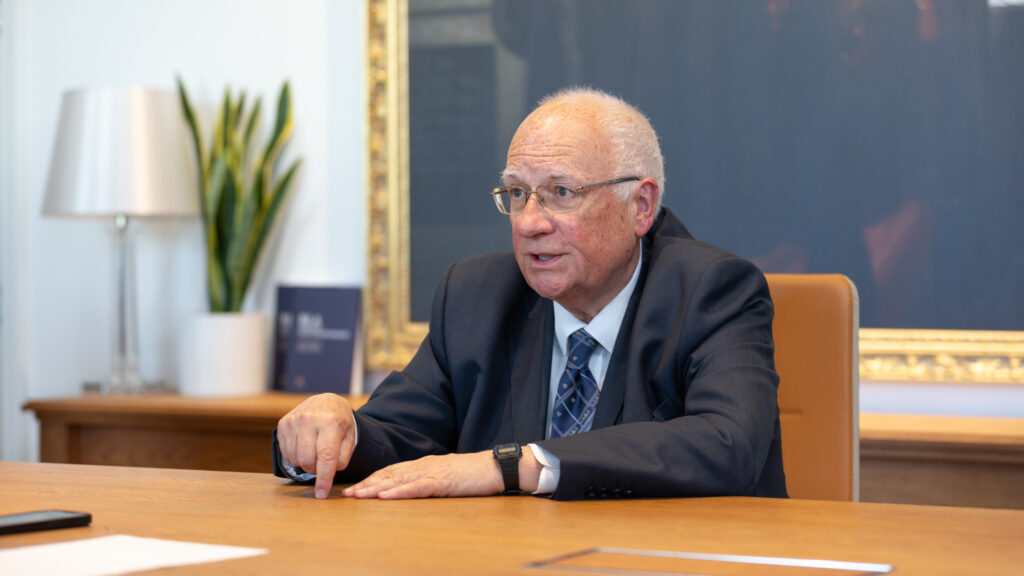
I guess in the 1970s, not many analysts or politicians expected that a lady could become Prime Minister and give new impetus to the country and the Conservatives.
That’s right. But this idea of her being the first British woman Prime Minister didn’t have much importance—that wasn’t the key issue in the 1970s. The question was whether the policies she was putting forward were the right policies for Britain, or whether they were too radical. So people weren’t saying: ‘We can’t have her because she’s a woman.’ They were saying: ‘We can’t have her because she’s too harsh, or too radical, or too dangerous.’
Some compare her to her hero, Churchill; some consider her a divisive, controversial person. Which do you think she was?
These two are not contradictions. All great leaders are divisive. I mean, de Gaulle was divisive, Churchill was divisive. When he was chucked out of power in 1945, certainly people didn’t like Churchill. And Mrs Thatcher was divisive too.
‘The question was whether the policies that she was putting forward were the right policies for Britain’
But the fact is that all democracies where there are big issues involved are going to be divided. Some people will think one thing, some will think another, and only after you’ve had a vote—that’s the route you go. But if you all apparently agree, it means you’ve actually not debated anything at all.
One of the best training grounds for young Conservative politicians is the Conservative Research Department. You were its directior in the mid-80s. Was it a natural way to get in the PM’s Policy Unit from that institution?
The Conservative Research Department was created a very long time ago, I think in the 1920s, so it’s an old institution. Originally, it was set up mainly, I believe, by people who had been in the intelligence services, particularly after the war. It was especially important when the party was in opposition, because it provided all the policy, briefing, and information for the leadership and the front bench of MPs.
People often came into the Research Department—many of us were from Oxford or Cambridge—some older, some younger. Some of us later became advisers to government departments, others went into politics. That was the route through the Research Department to becoming a political adviser. I stood for Parliament, didn’t get in 1983, and decided I couldn’t really be bothered with it anymore, so I stayed working in the background and eventually became Director of the Research Department.
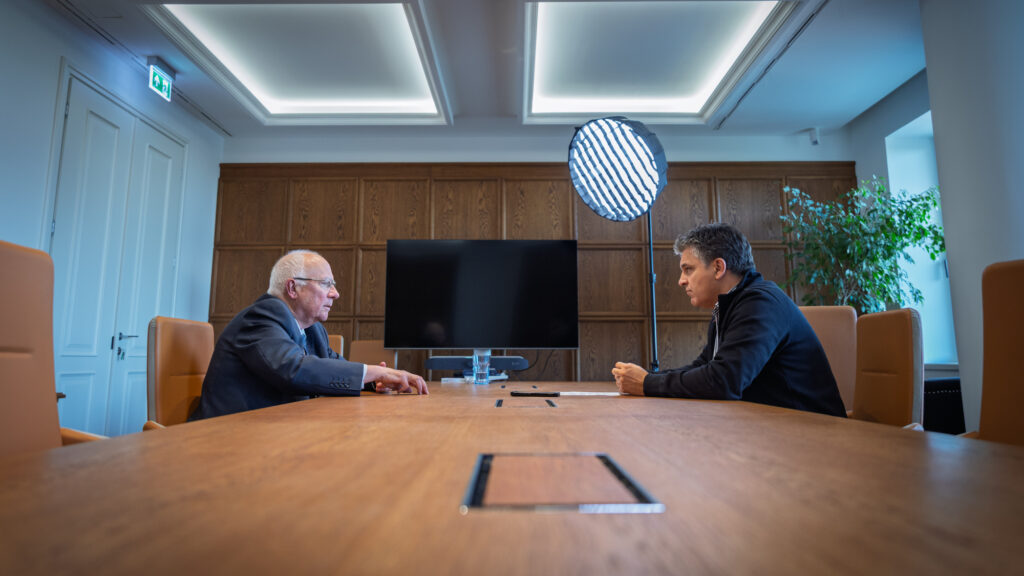
How did you get to the Prime Minister’s office? You were a special assistant, is it the right expression?
A special adviser. When I became Director of the Conservative Research Department in 1985, she insisted that I should take the position because she liked me. She and I had got to know each other when I was at the Treasury as an adviser on finance, and later at the Home Office. We once had an argument—I told her she was wrong about the use of imprisonment—and as a result of that argument, she took notice of me.
So, I suppose about two years later, when the vacancy came up for the head of the Research Department, she said: ‘Robin should get it.’ From then on, I was close to her, because I was writing her speeches. So was the real turning thing. I stayed in that role until 1989, when I left after a row with the Party Chairman. She then wanted me to come to 10 Downing Street, so I did—I was there as an adviser, part of the Policy Unit, for one year.
It was the last year of her premiership. What went wrong? She resigned in 1990—what was the big problem at that time?
There were three problems. The first was that if you’ve been around for more than ten years, people get fed up. If you’ve been in power long enough, there’s always jealousy and ambition. The second problem was that the economy had gone wrong—inflation had been allowed to rise, and we were going through a recession. And then we introduced this new local tax called the Community Charge, or Poll Tax, and that was a disaster, because the bills, for all sorts of technical reasons, were far higher than they were meant to be.
‘I was close to her, because I was writing her speeches. So that was the real thing’
The third thing was this creeping row over Europe. There was a real disagreement in the Cabinet about Europe, because most of them were still pro-European integration, and she was against it. So these things came together. And what happens in politics is that if disasters come in threes, you’ve had it.
She then foresaw what would happen in the European Union, what the political integration would be like.
Yes. Two years earlier, she delivered the Bruges speech—a very important speech in 1988—where she put forward an alternative model for Europe, one with no single currency, based instead on cooperation between individual nation states through trade and joint initiatives in areas of mutual interest. Very much, I think, as Viktor Orbán would probably like now. That was her vision, but it was not shared by most of the Cabinet.
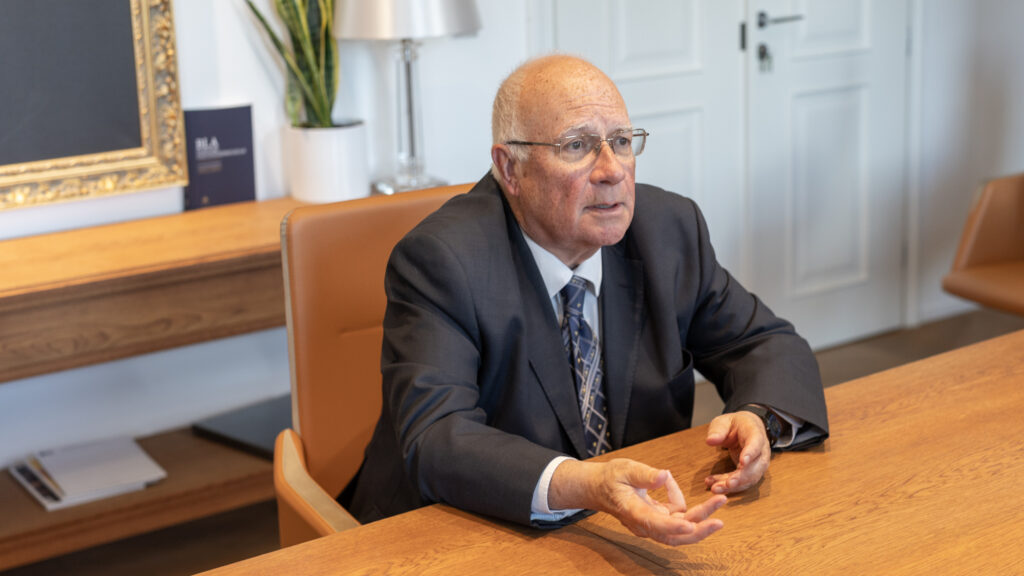
You helped her write her memoir, The Downing Street Years. How did the creative process go? How did you research the data and details? What was the method behind the writing?
She was good at writing letters. She was good at editing texts. But she wasn’t good at writing. And at the beginning, she was told by flatterers that she could do it. Very few politicians can write more than a page, and in the end, they realized that she couldn’t either. So the person asked to do it was me, and the person who helped at every stage was John O’Sullivan. Basically, it was John and me who did it—we drafted it—and we had a researcher. This researcher, working with Mrs Thatcher, had access to all the government papers as well as to all the newspapers.
It was done very quickly—in two years. How it was done that fast, I don’t know. I was dictating some of it, and everything was approved by her. Nothing went through without her review; we would go through it all, and she would say: ‘I don’t like this.’ That was the process. It was very intense, because the publishers wanted it out quickly.
When did you last see her? And what did you talk about? Do you remember?
She died in 2013, so perhaps I saw her in 2011. I didn’t see her for some time before the end, and I had no idea how ill she was. They treated her with dignity. But for some years before that, she couldn’t speak. The dementia had taken away her ability to speak, so it was very difficult. You would talk to her, and you didn’t know how much she was understanding. You want to help someone get through the sentences, but you mustn’t put words into their mouth. I tell you, it was not a pleasant experience, and I just hope I was good company to her. But it’s difficult to have a political discussion with someone who has that kind of speech problem. She probably could understand, but she couldn’t articulate. I used to go and see her, and we would have a drink and a chat — the last one was probably in 2011 or 2012.
What is Margaret Thatcher’s living political legacy in British politics today?
Well, I think the long-term legacy is that we are no longer a member of the European Union. Basically, the direction she set—that we should not move toward further integration—has prevailed. I would say that is her legacy, because although she was not there by the time of Brexit, she had kept that argument about British sovereignty alive.
‘I think the long-term legacy is that we are no longer a member of the European Union’
I suppose that’s it, really, because a lot of the rest of it has been lost—the idea of a small state, limited government, that sort of thing. The Conservatives completely betrayed all of that. They allowed a million non-European immigrants in one year, and they raised taxes to their highest level in 70 years. Mrs Thatcher’s legacy was betrayed by the Conservatives, and consequently, the party now finds it very difficult to get back into power.
Related articles:

